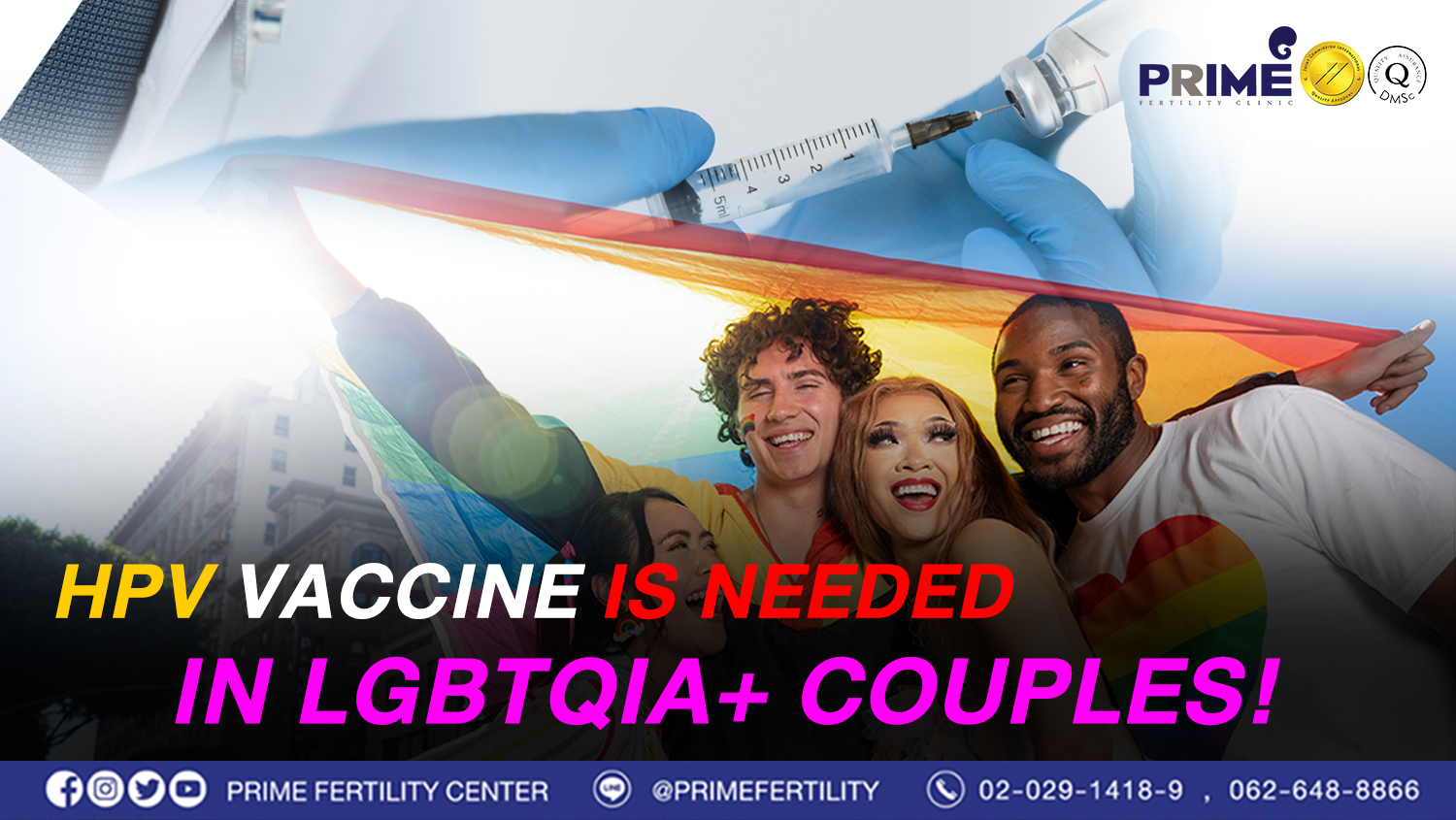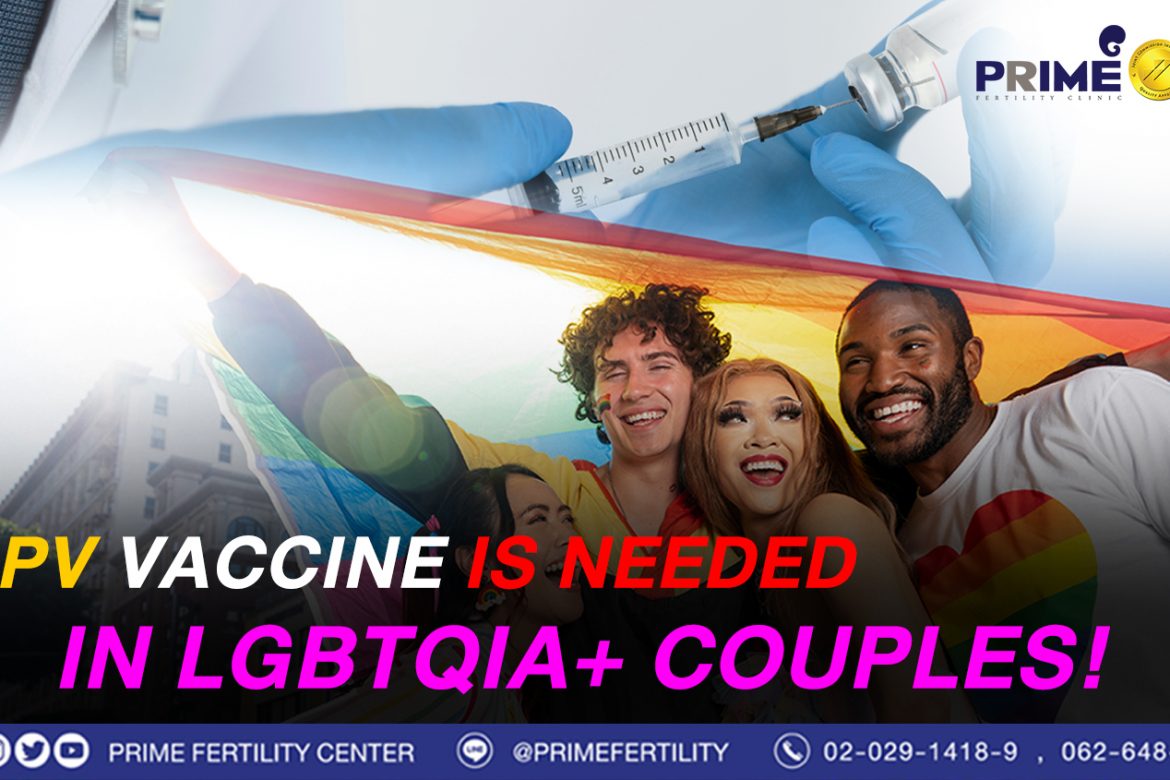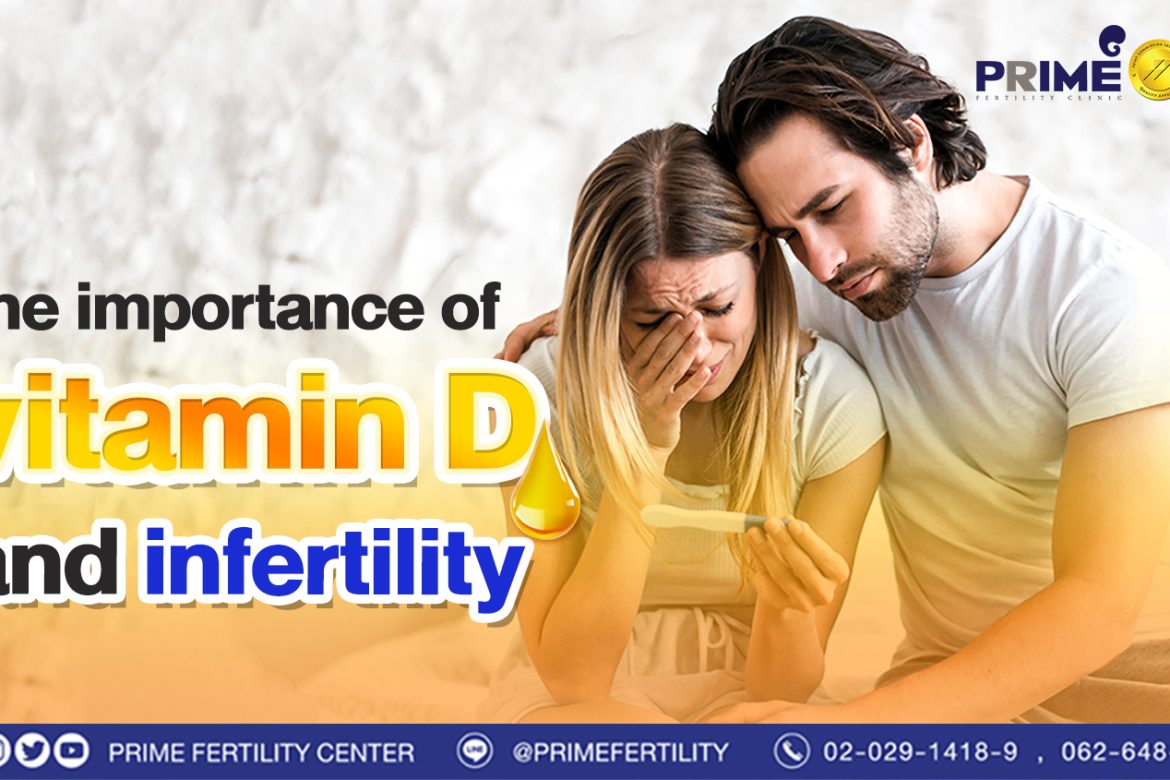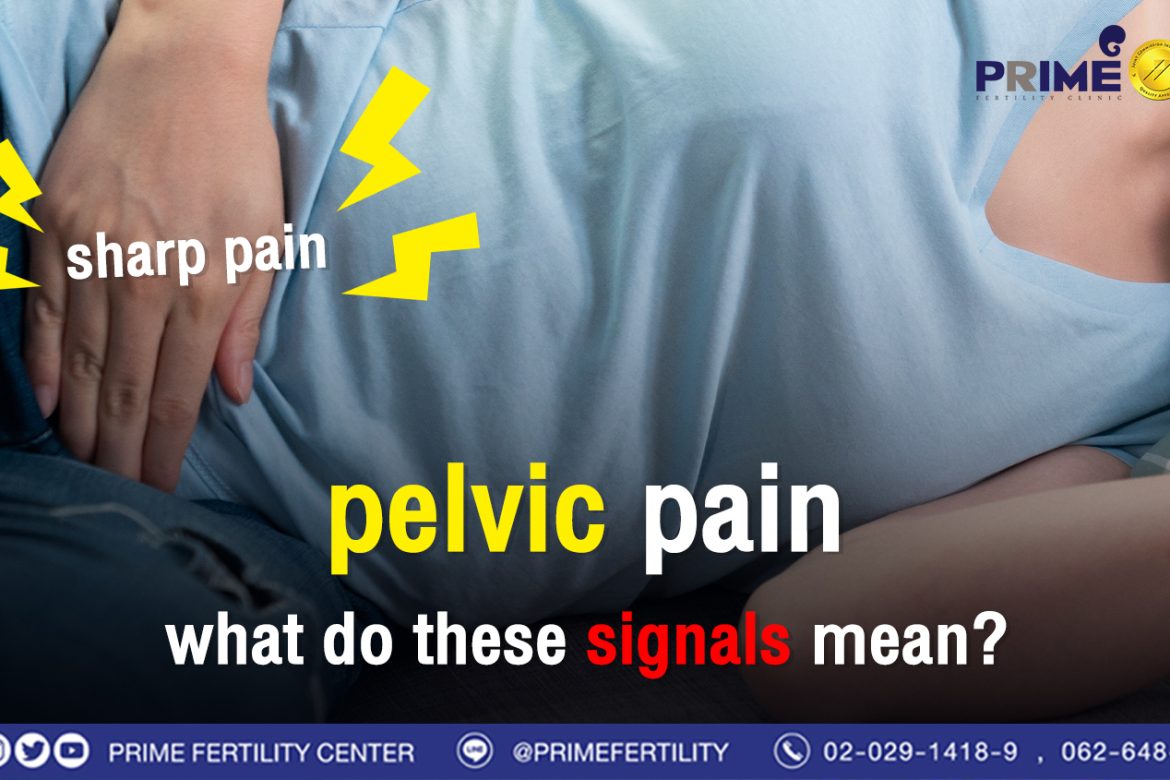Human Papillomavirus (HPV) is a viral infection that causes cervical cancer, vaginal cancer, and other cancers. There are several hundred varieties of HPV, spreading easily through sex by direct exposure. Cervical cancer is the third most common cancer among Thai women after breast and liver cancer.

HPV vaccine is not only necessary to women but it is also recommended in men or even LGBTQIA+ groups. This is because HPV infection can lead organ cancers, e.g., anal cancer, neck cancer, oral cancer, genital warts.
HPV vaccine is available for women, men, and people with sexual diversity at the age of 9-45 years and for those who have had sexual contact or never. Although a condom use can help in preventing sexually transmitted diseases but it is not more effective than getting HPV vaccine definitely.
Therefore, to get HPV vaccine is worth for protecting yourself from HPV infection. Completing HPV vaccination according to the doctor’s advice can provide the prevention longer than 10 years. So, it is considered an effective long-term protection.
Reference: Prime Fertility Center Co., Ltd.
If you’re interested in our ICSI program, kindly find more details as below website: https://www.primefertilitycenter.com/en/package-promotion-2/icsi-package/
—————————————————————–
ICSI (Intracytoplasmic Sperm Injection)
ICSI (Intracytoplasmic Sperm Injection) is an in vitro fertilization procedure with the laboratory technology. Both IVF and ICSI are comprising of similar procedures. But the difference is how sperm will fertilize an egg. In ICSI program, only one best sperm cell will be selected then injected directly into a fully matured egg. Patients will be prescribed some hormonal medications. Stimulating ovaries to produce several eggs. ICSI can make a pleasant fertilization rate. As well as reduces some fertilization problems or abnormalities caused from egg and sperm. For examples: multiple sperm fertilize an egg, sperm cannot penetrate the egg. The combined egg will transform to be an embryo after fertilization. Next, the embryo will be raised and will grow up among the appropriate environment inside a laboratory. Finally, the embryo will be transferred to the uterine cavity in order to implant then develop to be the fetus later on.
Couples who should receive the infertility treatment with ICSI program:
Female’s age more than 35 years
Stenosis for both sides of the fallopian tube
Severe Endometriosis
Ovarian hormone dysfunction for examples: Chronic Anovulation, PCOS (Polycystic Ovary Syndrome)
Severe sperm abnormalities including sperm morphology, sperm count, sperm motility
Male who is sterile or had a vasectomy but the body can still produce sperm. To extract sperm under this limitation, a surgical procedure will be performed such as PESA, TESA, TESE.
Couples who have failed from previous IVF cycle
Couples who prefer to screen the embryo’s genetic diseases
Frozen Embryo Transfer (FET)
Frozen Embryo Transfer (FET) is the process of embryo transplantation into the uterus after thawing frozen embryo. The patient can choose the FET date by convenient time e.g., 1-2 months after the fertilization process. The evidence supports FET in women more than 35 years of age are providing more pregnancy rates than FRESH embryo transfer.
Due to the inducing medication that the female takes to develop multiple of healthy ovum, the huge amount of hormones generated will weaken endometrium, consequently lessening the success rate of the transfer regardless of the perfect condition of embryos. Given the circumstance, the embryo transfer right away after ovum retrieval (FRESH transfer) may not be an effective protocol.
Moreover, a number of studies from various institutes found that FET offers better and higher chance of pregnancy than the FRESH transfer because endometrial tissue is in more proper state for embryos. Therefore, the doctor will consider which protocol fits best for each couple individually.



